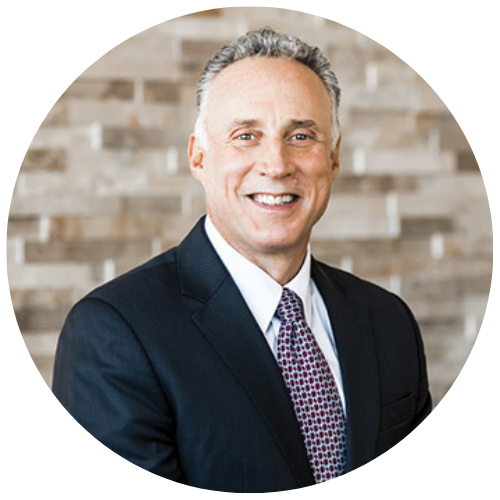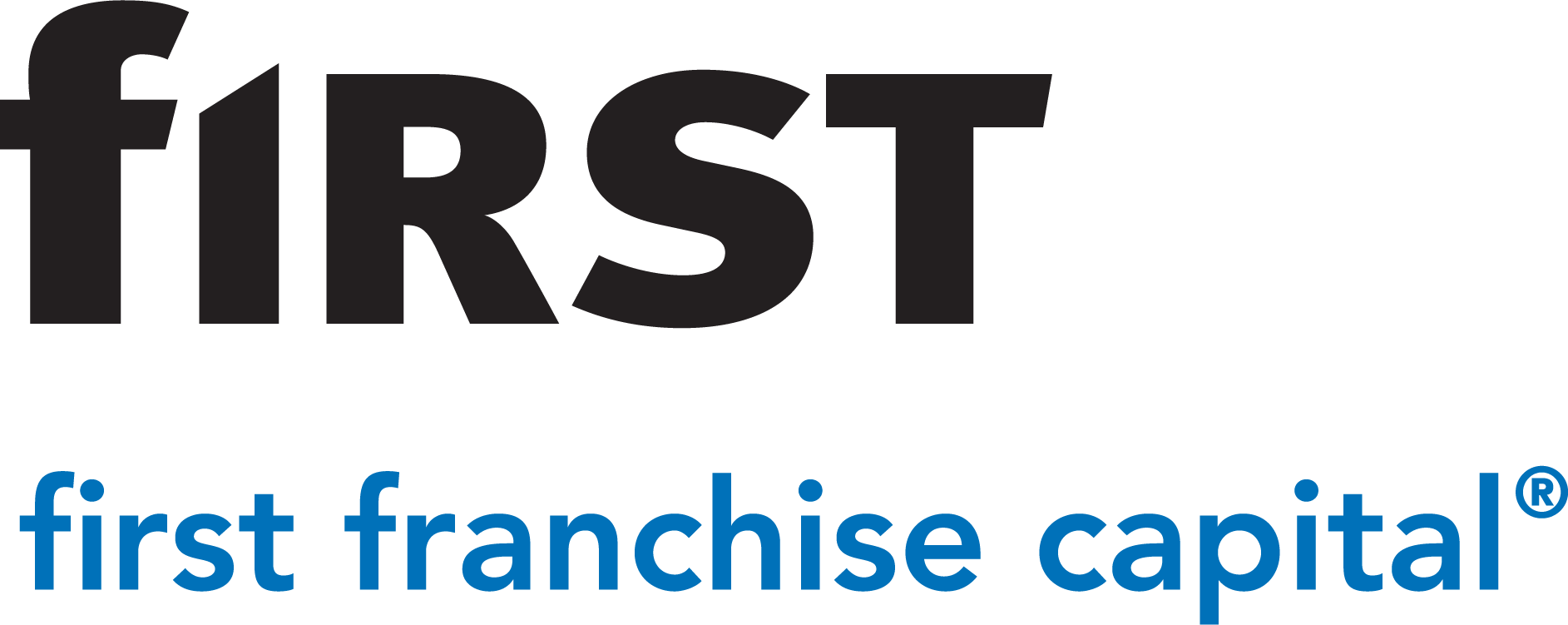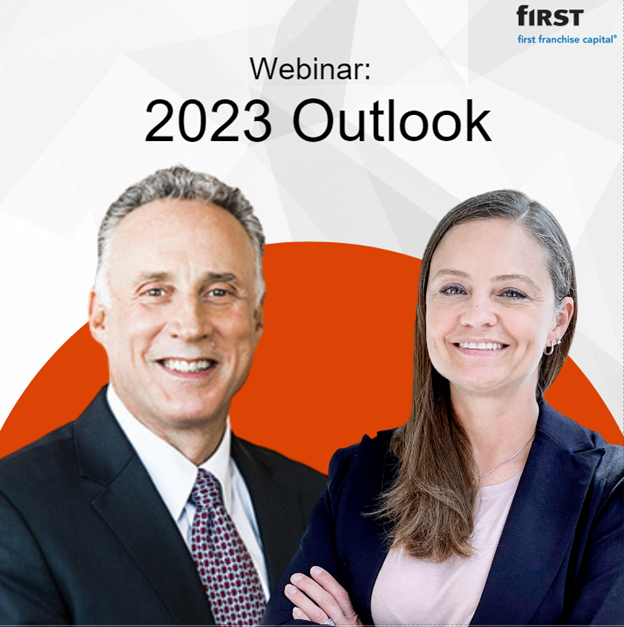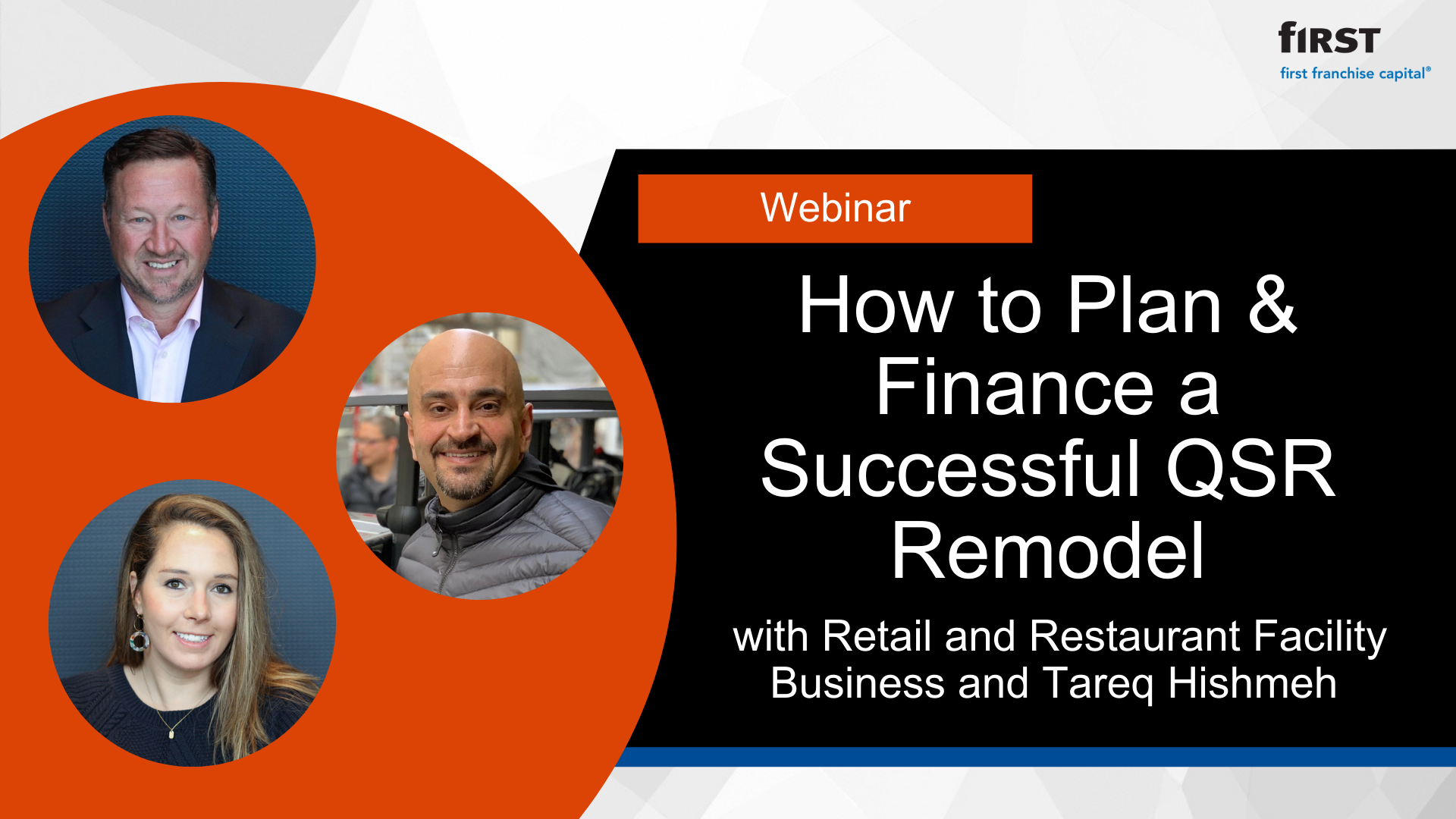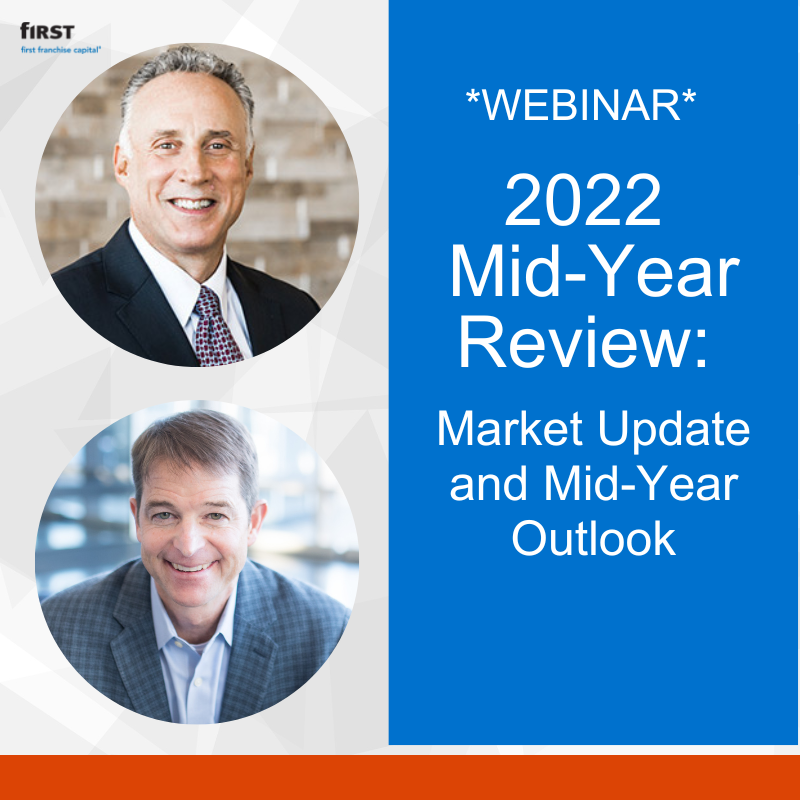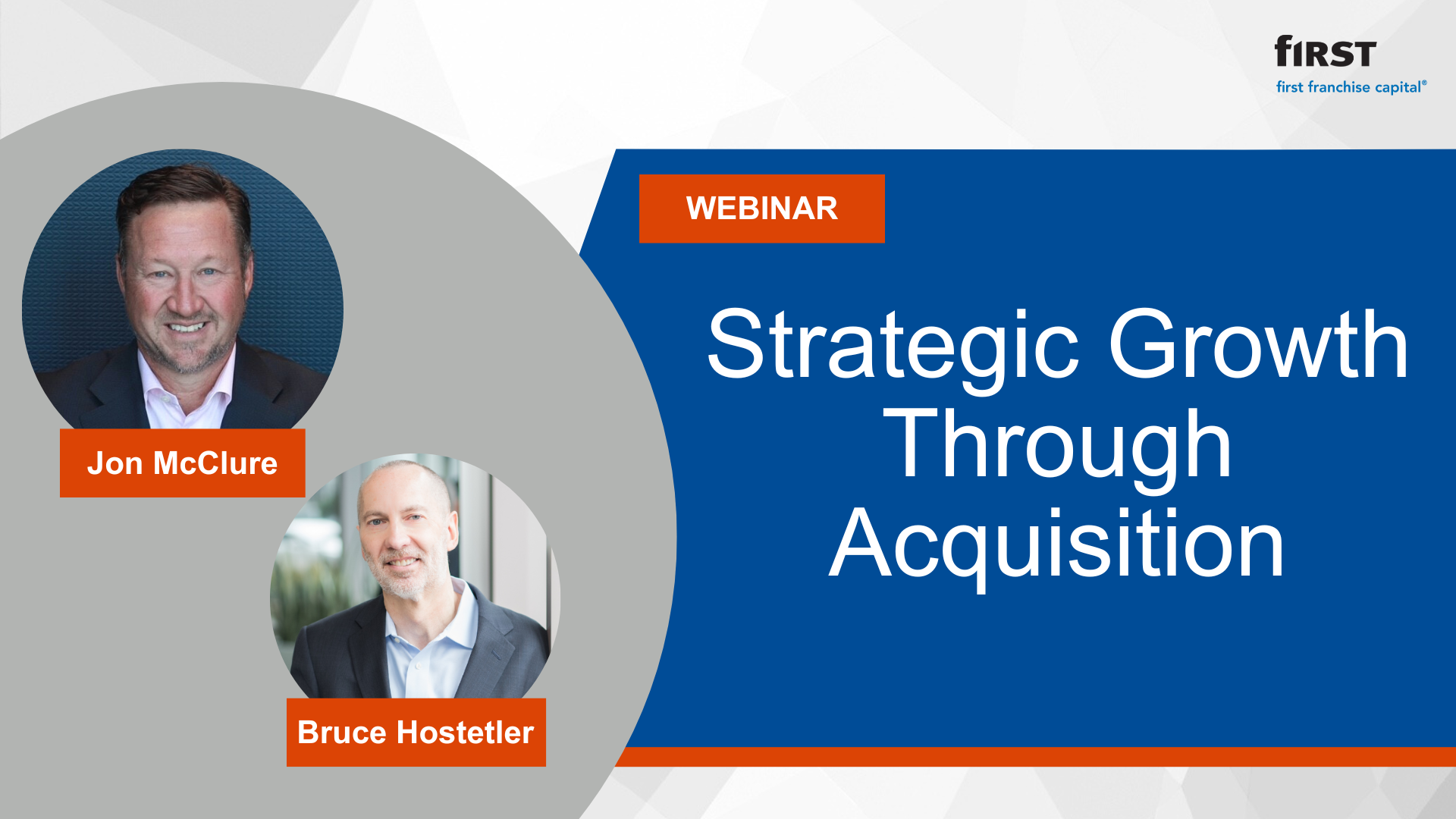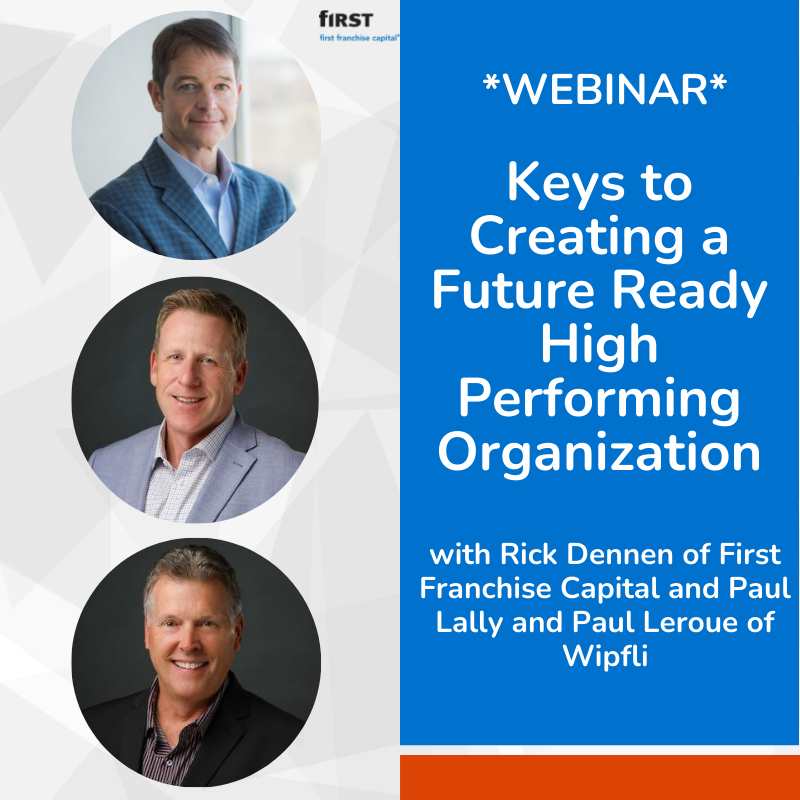2023 Outlook: Market Update and End of Year Review
- 0.5
- 1
- 1.25
- 1.5
- 1.75
- 2
Bridget Haight: Hi everyone, and thank you for joining us today. I'm Bridget Haight, the host and moderator for Oak Street Funding webinars and podcasts. Today I am happy to be joined by Alicia Chandler and Marc Chandler, no relation. Alicia is president of First Commercial Finance, which includes being Oak Street Funding and First Franchise Capital. Marc is managing director and chief market strategist at Bannockburn Global Forex. We have a packed agenda today as Marc and Alicia will discuss the decisions and implications from the Federal Reserve meeting, impacts of the elections, and discuss end of year planning and preparing for 2023 based on the current market. Alicia, Marc, thank you for taking time out of your day to join us.
Alicia Chandler: Thank you. I'm excited to be here.
Marc Chandler: Thank you. It was a pleasure.
Bridget Haight: Thanks, Marc.
Marc Chandler: Thank you.
Bridget Haight: We are going to just jump right in. We've received a lot of questions from those who registered, so we'll get started with those. We will also have someone try to respond to live questions if any of them are submitted. So to begin with, Marc, can you provide a general overview of what the Fed just decided earlier this month?
Marc Chandler: Sure. Well, thank you. The Federal Reserve, they raised rates 75 basis points, and what's interesting about it is that at first the market read the Federal Reserve to be dovish. That is the Federal Reserve said they will take into account the cumulative effect of past rate hikes and the idea that the monetary policy impacts with the lag. The market thought this was dovish, that the Federal Reserve has had what the market's called a pivot. It was going to pivot from a very hawkish stance to somewhat less hawkish. But instead, as Chairman Powell began speaking, he made it clear that the Federal Reserve was not about to pause. In fact, he said, " It was too early to even think about pausing." And so what the market did was the market says, " Still thinks that the Federal Reserve most likely to hike rates 50 basis points in December and then further hikes next year." What the market took away from it was that the Federal Reserve's terminal rate, they have to peak rate, is probably between five and five and a quarter percent. And rather than the peak coming in Q1, next year probably comes in Q2.
Bridget Haight: Okay. Okay. So however, the Fed meeting is not the only decision that is impacting the market. We had an election just last week. So can you provide an overview of the results and explain how you foresee that affecting?
Marc Chandler: Well, all elections are important, and I know a lot of partisans think that this was the most important election since the last one, but what really moves the interest rate market and the foreign exchange market, and really the overall economy, is probably not the election. Monetary policy as you know the Federal Reserve is independent. So the Federal Reserve's going to raise rates regardless of how that election came out. And the same thing is probably true for fiscal policy. The big issue next year is going to be the debt ceiling, but in the short run, I don't think that the election is going to be that important for the trajectory of the US economy, which is a bit worrisome.
Bridget Haight: Okay. Thanks, Marc. So before we move on to more specific questions, Alicia, I think it might be prudent to explain how you foresee the increasing rates and how they'll affect lending in general, and a follow up to that, will there be additional loan options and products available as they increase?
Alicia Chandler: So Bridget, that's a good question. To date, we've not seen any large effects on our lending. We still have a large pipeline through the end of the year. I think it's just people are being more prudent about the sales, the purchases that they're undertaking, and any potential impact that might have on the multiples. Although, as of yet, we've not seen the multiples come down for our lines of business. What we've actually seen it's more creative seller notes or earn out structures on the back end. So people are just adjusting with the way that the economy's going. With respect to loan options, I don't foresee any additional loan options or products. However, with the creative structures that we've seen on acquisitions, we've been nimble and we've been able to adjust our underwriting to address any changes in the seller earn outs or the back end.
Bridget Haight: Okay. Great. So then, considering the aggressive rate increases, investment opportunities should also increase, as well as for those with access to capital. So other than M& A and succession capital, should business owners be looking at other uses of capital like debt just for high returns?
Alicia Chandler: Yeah, I think now there's never a perfect time to borrow. I think prudent borrows and entrepreneurs, they're not going to pass up on an opportunity to do a good deal, to do what they think is best for their business. And debt is still cheaper than equity. So I think, again, it all comes back to responsible borrowing. We've seen people that are still bringing on teams of advisors or CPAs for their firm, additional insurance agents. And also just paying off some seller debt if it's at a higher interest rate, or even succession planning, continues to be very hot in this market and it's a necessity. So you can't just stop business because of the interest rates are rising.
Bridget Haight: Right. Right. Hey, Marc, we're going to bring it back to you. In our midyear webinar, you discussed your outlook for the second half of 2022, and you provided insights to help our business owners. Since there is still some time for business planning for a strong end to 2022, and especially for the 2023 strategic planning, what do you foresee happening in the beginning of 2023 the business owners need to start preparing for?
Marc Chandler: Yes. I think that the challenge is going to be that the Federal Reserve is committed to slowing the economy down. They're committed to tightening financial conditions, and it's not just the Federal Reserve that's tightening, but fiscal policy is also contracting. Put this in perspective for you, last year, that is in 2021, the US we had a budget deficit of about 10 and a half percent of GDP. This year, 2022, it's likely to fall to around four and a half percent. This kind of tightening of fiscal policy, it took us, I want to say like three or four years after the great financial crisis to get to this magnitude of fiscal consolidation. So we've got this combination of tight monetary policy, tight fiscal policy. And the other thing that a lot of our businesses need to be aware of and be sensitive to, of course, is the higher input costs. In particular, the last three recessions in the US have been preceded by a doubling of the price of oil. And once again, oil prices have doubled. We're still around$ 90 a barrel here as we wind down the year. So I think that the important thing to realize is that one, that policy is going to hurt businesses. That's going to slow down demand, and that's the purpose of it. I know people think that a lot of the shocks are coming from the supply side. So what can the Federal Reserve do? It can only control demand side by raising interest rates and lowering demand, so it's more in line with supply. So I think that's what we need to prepare for is that demand is going to be compressed. Economists have a great way to call it demand destruction-
Bridget Haight: Demand destruction.
Marc Chandler: ...and that's what we're going to be experiencing, I think so. I think for many businesses just to be prepared for a more challenging economic time with higher interest rates and slower growth, I'm still biased towards a contraction, a genuine recession later in 2023.
Bridget Haight: Okay. Thanks for that, Marc. So Alicia, what are you hearing from our Oak Street Funding customers? Are the interest rate increases impacting valuations, and do you see that trend staying throughout the beginning of 2023?
Alicia Chandler: So over the last couple weeks, I've had the opportunity to attend several conferences and the registered investment advisor space, so I can speak to that particularly. The valuations have not started coming down. However, buyers and sellers are being more creative on their structures, and so they've adjusted it that way, but we've not yet seen those come down. So it's a little surprising. And perhaps this fourth quarter, once the results of the fourth quarter are seen early next year, we'll see some of those valuations come down, but not as of yet.
Bridget Haight: All right. So we do have some franchise restaurant owners on the call, and I want to ask a specific questions and strategies could be very different for them than a CPA, an investment advisor, an insurance agent. Are there specific impacts to the QSR industry due to inflation and increasing rates?
Alicia Chandler: It is. The inflation is definitely an addition to the supply chain, which is still struggling from its own issues, inflation is still a concern. At some point, these QSR, the restaurants can only raise their prices so high before people either can't afford it or decide they're going to try a cheaper option, less expensive option. So for example, if you have a family of four that typically used to go to, let's say Applebee's, which we call fast casual dining, and the prices have increased so much, maybe now this family has decided, " Well, this is too expensive. I'm going to go to Taco Bell." Because it's less expensive. So it's changing the way that consumers are going out to eat. And again, the increased prices of the goods, it's definitely having an impact on the the quarterly financials of our borrower. So they're also tightening down.
Bridget Haight: Okay. Okay.
Marc Chandler: Maybe I could say something here too. What Alicia mentioned, I think, is very important, especially for businesses that are face to face with the consumer. It seems to me that a lot of households are finding it increasingly difficult to make ends meet. And what consumers seem to be doing, to Alicia's point, is that they are looking to reduce expenses. And partly that's like going grocery shopping and looking for the store brand instead of the brands, instead of the national brands. But also, I'd say consumers have done three things, and all three of them are, say, limited duration, first thing that many Americans did. And as you know, more Americans are homeowners than renters. And so what people did last year where they took and when they refinanced their houses, they took equity out. But since mortgage rates have jumped so much, that game is over, and we've really seen a slowdown in mortgage applications. The other thing that many households did is they dipped into savings, that also is a limited strategy. The third thing they've done is they've racked up credit card debt. And when it comes to buying clothes or buying things, we know that we pay, we as consumers pay the... We pay a retail price, and the people we buy it from are paying a wholesale price. The same thing works for money. After the Federal Reserve rate hike last week, the wholesale price of money, what banks charge each other is about 4%. My credit card is about 21%. That's the difference between wholesale and retail money. And so I think that the credit card usage, it's very high, but it's not quite yet at its limit. But if we project in a sort of naive way, a linear fashion, consumer credit is very stretched and near the limits on credit card revolving debt.
Bridget Haight: So are there any additional trends that are happening with QSR right now?
Alicia Chandler: So in addition to the inflation issue, I think that the labor is still a struggle for the QSR. The restaurants, you see the signs all the time, still going up and down the streets. They're doing incentives still. And in a response to that, a lot of the franchisors have become... I mean, they acted very quickly, and they have implemented a lot heavier drive through focus. You'll see some places now-
Bridget Haight: Are just drive- thru.
Alicia Chandler: Right. They're just drive through. They can't get enough people to staff inside and to manage the restaurant. So they've gone to the drive through model. And some have even built on additional drive-thrus or a pickup area. I think everyone liked a lot of the more customer service friendly aspect they got, and just not having to deal with the people at the front line and just get going in, getting their food at the drive- thru or going in and picking it up. So a lot of the franchisors have definitely adapted to that. And those that have not, you're going to see them struggling, and they may have some issues with the coming quarters. The other thing I think that still is a concern, and depending on a couple things nationally, is the supply side could still be a concern. So we'll have to see how that plays out in the next few months.
Bridget Haight: Okay. Thank you.
Marc Chandler: Maybe I can say something too about this-
Bridget Haight: Yes. Please, Marc.
Marc Chandler: What I see businesses doing when they struggle to secure talent, I think that it gives greater incentive to replace people with technology. More automation. I mean, how long ago that we were able to have our groceries, someone else check out our groceries? And now increasingly we are expected to check out our groceries. And I think that's just an example about cutting edge technology, replacing workers when possible. And I think that's going to be the part of the solution, I should say, to this difficulty, businesses are still facing trying to secure talent, especially those positions where it's people to people and it doesn't give you that flexibility to work from home.
Bridget Haight: Okay. Great point. So, Marc, to continue with you, are there strategies that business owners should deploy in order to work with the market as much as they can? For instance, are there things they should do now, and are there things that they should just hold off on?
Marc Chandler: Well, from where I stand and from the clients we talk with, I think that a key for them has been this incredible strength of the US dollar. And this means that selling goods overseas has become more expensive, less competitive. And the good news, I think, is that if I'm right about the US economy weakening and the Federal Reserve getting done with rate hikes in the first part of next year, then we could see the dollar weakening, and that would take off some pressure off of US exporters. In addition, and that's really the takeaway point, I think, is that the market is pricing in, as I mentioned, further Fed rate hikes, but the market thinks that the Fed's going to break something, whether it breaks the consumer, whether inflation finally comes down, or whether there's financial stress, systemic risks, that the market is still pricing in about 80% chance that towards the end of next year, the Federal Reserve will cut interest rates. And so partly that means to be patient, to know that we're going through a tough economic time, but they were nearly through it in the sense that the Fed began raising rates in March this year from near zero, we had 4%. The market thinks there's another hundred, maybe 125 basis points left. So the first part of the year may be difficult, but the second half of next year looks a little bit more positive, weaker dollar, and perhaps lower interest rates.
Bridget Haight: Okay. So hope on the horizon there. All right. Well, before we wrap up, we've covered a lot of topics today, and I think it would be helpful to just summarize what we've all talked about. So Alicia and Marc, what is one takeaway that you would offer the audience as they end 2022, and then one you would offer for their 2023 beginning? Marc, we'll start with you.
Marc Chandler: Sure. This has been a difficult year. The uneven reopening from COIVD. And uneven, it's not just within the United States, but it's even globally. The world's second large economy, China, still locking down large areas of their economy as they pursue the zero COVID policy. The Russian invasion of Ukraine is also a major disruptive force. Perhaps the largest disruptive force is this adjustment of repricing assets from a zero interest rate world to a much higher interest rate world. These shocks of what we've really been absorbing this year, almost like a snake eating a dough, it takes a while for to push it through this entire body.
Bridget Haight: Hope I wasn't in it.
Marc Chandler: I think that's going to happen over the next several months is that digestion process continues. And I think that the... That's why I'm thinking that we should be prepared for more difficult economic times, consumers getting squeezed. The federal reserves still committed to tightening financial conditions, and it's not just in the United States, but it's really globally. Most countries are raising interest rates. Let it leave aside Japan and China. So I don't say it's coordinated, but this move in concept tightening financial conditions, poses a big headwind for our economy and the world's economy. And I grew up in Chicago, and I'm still a Cubs fan, which means that there's always next year. So it's almost like inaudible of optimism. And that's right, I suppose feel a bit optimistic that we've weathered much of this storm already, that a few more months to go, and I'd be planning for that. Building up cash, preparing for slower consumption, slower demand from our clients.
Bridget Haight: Okay. Great advice. Thanks, Marc. How about you, Alicia?
Alicia Chandler: With respect to the rates, we're still not at the rates that we were back in the'80s, but it is a shock. We were at 325-
Bridget Haight: It's been spoiled.
Alicia Chandler: Right. I do. I think some people have been spoiled and maybe don't want to think about the rates that we have today, but again, it's cheaper than equity. Giving away a piece of your business to get some extra cash flow, typically you don't have to deal with the potential headaches of additional ownership. So taking out debt, I think, is still a prudent option. And again, businesses can't freeze, can't have that deer in the headlights. Look, if you're a good business, an entrepreneur, you're going to figure out ways to make things work. You're going to put more equity back into the company. And there are things that can't wait, succession planning or the acquisition opportunities that are still coming about because people are still retiring in a lot of these areas. And so, again, it all comes back to just being responsible with the debt and making those great decisions. Sure.
Marc Chandler: Yeah. Well, one of the things that might be of interest is that a lot of our clients are from in the private equity space, and where are their good deals right now? But partly it's coming from the foreign exchange market because the dollar has not been this rich, which is to say the euro and yen has not been this cheap in our lifetimes, basically since early 1970s. And so what that means then is for businesses who are looking to add on that is a private equity firm looking to grow, buy something, make an acquisition. We're seeing a lot of interest in both Japanese and European acquisitions because the currency is so cheap. By cheap, I mean, there's a, say, you've probably seen this in the economist magazine, where they have the Big Mac. And the idea is that a basket of tradable goods should trade for the same price around the world. And to the extent they don't. When you make the currency conversion, shows you a misalignment. And typically, the major currencies aren't much more than plus or minus 20% from fair value. Today, the euro and the yen are about 45% below fair value. And so it affects people's behaviors. I know it affected mine. I can't tell you that my wife and I have celebrated her 60th birthday, but we went to Portugal, and the reason we went to Portugal was because it was so cheap. That is tourism. Japanese have just made a lot of things to make tourists more welcome in Japan, for example. And I see this as an opportunity for businesses to want to strap on, but add on to their existing portfolio companies looking for good and cheap assets in Europe and Japan.
Bridget Haight: Thank you so much. It's been very informative. And that's all the time that we have for today. You'll receive a link to this recording in the next few days, so stay tuned for more content from us and have a happy holiday season from Oak Street Funding, First Franchise Capital, and Bannockburn Global Forex. Thanks everybody.
Alicia Chandler: Thank you.
Today's Guests
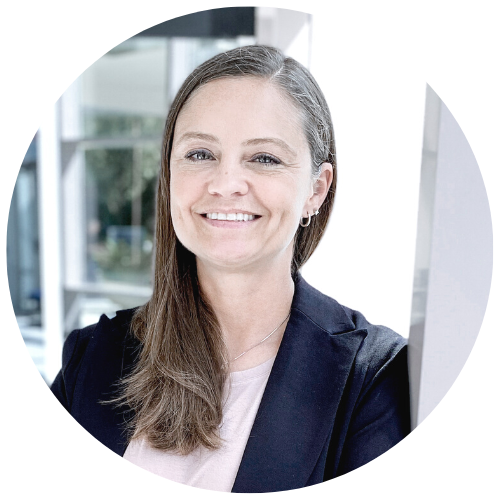
Alicia Chandler
